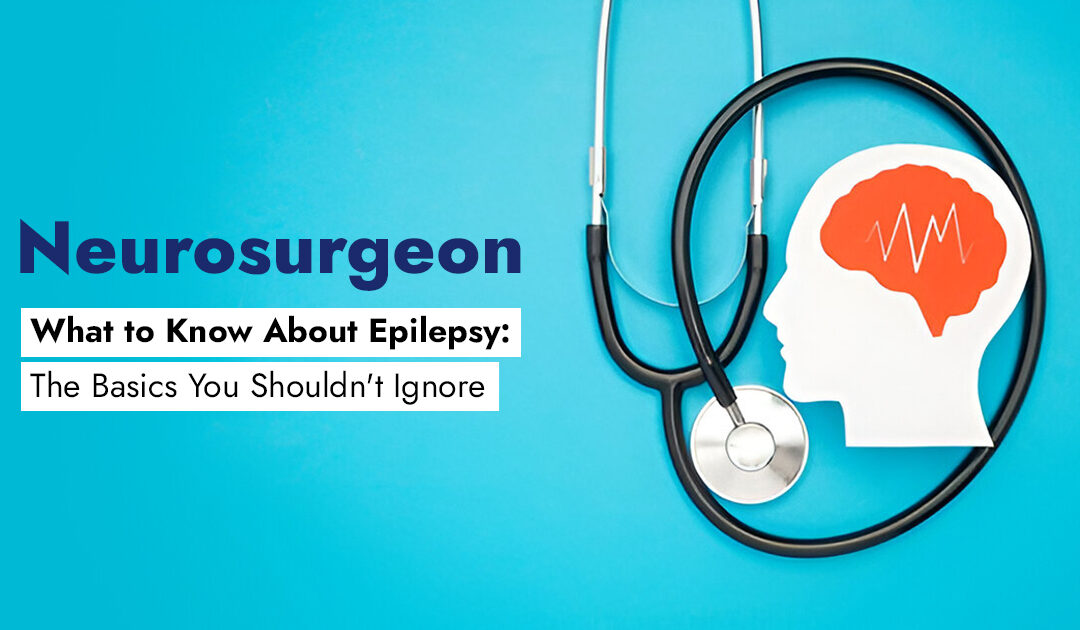Epilepsy is a brain condition causing recurring seizures. Also known as a seizure disorder, it is common. According to the National Institutes of Health (NIH), over 12 million people in India have epilepsy, which forms almost one-sixth of the global burden. While the cause of epilepsy can be determined in some people, it might be difficult in others. It affects people of all genders, races, ethnic backgrounds, and ages and does not have the same list of symptoms for all.
The symptoms differ from one person to another in epilepsy. While some may repeatedly experience twitching in arms or legs in the form of convulsions, others may stare blankly at the time of seizure. There is no similar experience of epilepsy in most cases.
Diagnosis:
It’s a popular myth that a single episode of seizures might indicate that you have epilepsy. The right diagnosis, however, is that if you or someone you know has experienced at least two unprovoked seizures at least 24 hours apart, it may be epilepsy. There is no clear cause for unprovoked seizures.
Symptoms:
While symptoms vary from one person to another, here is a common list of symptoms experienced by those with epilepsy. Some may include:
- Staring spell
- Uncontrolled jerking movement of arms and legs
- Stiffened muscles
- Temporary confusion
- Loss of consciousness
- Psychological symptoms like fear, anxiety, or deja vu.
While some people may have a change in their behavior, others may experience psychosis too. Those suffering from epilepsy usually have the same kind of seizure every time, coupled with the same set of symptoms in each episode.
Recognizing Red Flags of Seizure:
Before an epileptic seizure, some people experience warning signs in those moments, known as auras. These signs may even be a simple feeling in the stomach or emotions such as fear and deja vu. Aura could also embody a taste, a smell, a light, a color, or a shape. While some feel dizzy and lose balance, others experience hallucinations. Seizures can either be focal or generalized depending on where and how the brain activity causing it is.
Those with focal seizures have some or low awareness and might have an altered emotion or distorted perception of things. They may also experience deja vu and uncontrollable jerking of a body part, such as an arm or leg. Apart from these symptoms, the person may also experience sensory tingling, dizziness, and the triggering feeling of flashing lights.
Focal seizures with impaired awareness or complex seizures are those with a change or loss of consciousness that may make the person feel like they’re in a dream. People in this scenario may blankly stare into a space and have no response to anything in their environment. They may also have recurring actions or movements such as hand rubbing, chewing, swallowing, or walking in circles.
While these symptoms may be confused with migraines, narcolepsy, or mental illness, it is always advised to seek a medical opinion and a thorough examination for the right diagnosis.
The focal seizures may arise from the temporal, frontal, or occipital lobes of the brain, whereas generalized seizures arise from all areas of the brain.
When to Consult a Doctor?
If one experiences any of these symptoms during a seizure, contact a doctor immediately.
- A seizure lasting more than five minutes
- No return of breathing or consciousness after the seizure stops.
- An immediate second seizure.
- In case of high fever.
- In case of diabetes.
- In case of injury.
- If it continues despite anti-seizure medicine.
If you experience a seizure for the first time, seek medical advice.

